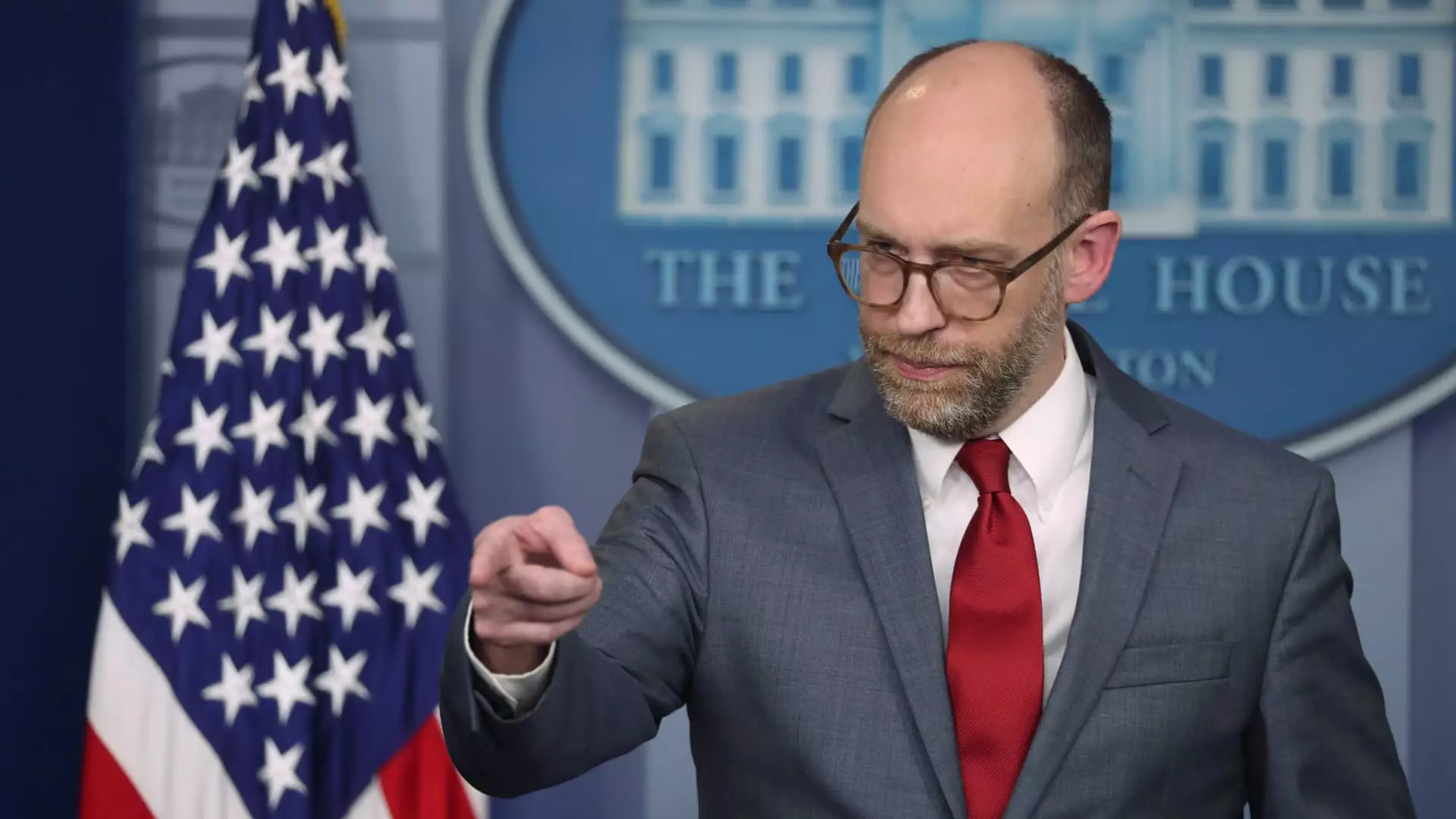The Consumer Financial Protection Bureau (CFPB) has found itself at the intersection of political maneuvering and public service, as recent developments have raised concerns about its future and functionality. A memo detailing the agency’s remote work transition was disseminated to staff on Sunday, outlining the closure of its Washington, D.C., headquarters through February 14. As tensions mount surrounding the bureau’s oversight capabilities, especially in the wake of political changes, it is critical to dissect the implications of these recent events.
A communication from newly appointed acting director Russell Vought has cast a shadow over the agency, mandating a suspension of many essential functions, including critical supervision of financial institutions. The memo’s abruptness signals a potentially radical shift in how the CFPB operates, highlighting a growing apprehension among staff about their job security and the agency’s long-term viability. The loss of days dedicated to oversight raises significant alarm bells about regulatory standards at a time when consumer protection is deeply entwined with financial health.
This freeze aligns with broader objectives hinted at by Vought, who has voiced intentions to reform the government, possibly at the expense of institutions like the CFPB. Vought, who recently transitioned from his role at the Office of Management and Budget, also indicated a cessation of new funding directed to the CFPB. This action, framed as a move against past bureaucratic “unaccountability,” suggests a deliberate strategy to diminish the agency’s power. Disabling funding mechanisms can be an effective tool to cripple regulatory bodies, raising questions about the long-term impacts on consumer rights.
The Threat of Outsourcing and Political Warfare
The arrival of employees associated with Elon Musk’s DOGE entity to the CFPB has stirred speculation about potential outsized influence on the agency’s activities. Reports suggest that these operatives have gained access to sensitive CFPB data and performance reviews, further intensifying fears of politicization within the bureau. Musk’s explicit disdain for the CFPB, made clear by his recent social media outbursts, amplifies concerns over a concerted effort to undermine the regulator’s effectiveness through external interference.
Musk’s previous calls for the dissolution of the CFPB signal a long-standing animosity toward regulatory oversight, particularly in the financial sector. As the head of an extensive business empire, Musk’s interest in eliminating barriers and regulations makes this engagement more alarming. The potential for ideology driven by private interests to replace consumer protection is an unsettling prospect that could jeopardize the very purpose for which the CFPB was established.
With approximately 1,700 staff members, the CFPB faces a precarious situation. Only a fraction of these positions is legally enforced, elucidating concern for mass layoffs amid governmental upheaval. Such cuts not only threaten the livelihoods of employees but also hinder the continuity of the CFPB’s mission to protect consumers from financial predation. The influence of a politically charged environment could lead to significant disruptions in the bureau’s ability to enact protections designed to benefit millions of Americans.
The stakes are particularly high for numerous initiatives currently underway—efforts aimed at curbing exploitative financial practices that disproportionately affect vulnerable consumers. For instance, ongoing measures to eliminate excessive credit card fees and mitigate harmful medical debt from credit reports are at risk. These initiatives are not mere bureaucratic exercises; they represent tangible protections for consumers who have already endured financial hardship, particularly in the aftermath of the 2008 financial crisis.
The future of the CFPB hangs in the balance as political forces contend with the bureau’s foundational goal: safeguarding consumer interests in a complex and often predatory financial landscape. The potential implications of these recent changes stretch far beyond the agency’s walls, impacting the lives of millions. As stakeholders navigate this turbulent waters, it is crucial for advocates of consumer protection to rally for the preservation and strengthening of the CFPB, ensuring that it can continue its critical role in promoting a fair financial playing field for all Americans. In a landscape shaped by corporate influence and political change, the commitment to consumer safety must remain resolute.

